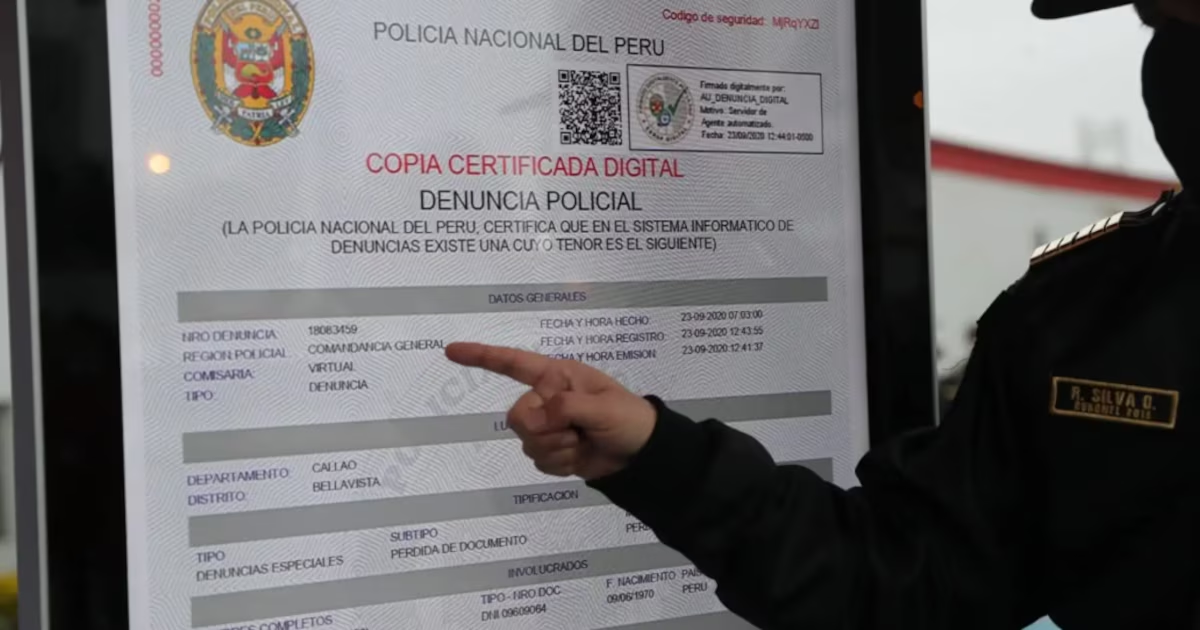
A hacker identified as “Milan” admitted to an investigative magazine Hildebrand, 13 years old sells complaint database national police (PNP) and its data national intelligence agency (DINI) 500 soles and 1,000 soles respectively.
A report published last Friday by the magazine, which cited interviews with three cyberhackers, said the notice was circulated within Telegram groups through messages specifying that it concerned “approximately 40 million records of Peruvian numbers, property, and complaints.”
Milan, a founding member of the Nulled Perú group, explained that among the extracted files were thousands of documents from the Ministry of the Interior, the Police Complaints System (Sidpol) and the Telecommunications Private Investment Supervisory Authority (Osiptel).
“We sell police report bases for 500 soles. Bases with phone numbers cost 350 soles. These are resellers, personal information submission bots that provide phone numbers to spam companies, i don’t care‘ he declared to the magazine.

“Milan” also told the weekly that it received information within five minutes from more than 26,000 teachers and students of the Private University of Antenor Orrego (UPAO) directly from the academic system.
A few days later, he accessed the records of 1,714 people enrolled at the University of Piura. For Franco Peruano schools, we obtained data from 296 teachers, 752 students, and 2,551 families. In October, he hacked into the University of San Martín de Porres’ system and extensively changed all profile pictures to images of the interim president. Jose Geri Along with a straw hat.
Recently, another intervention took place on the servers of the University of Cesar Vallejo (UCV). “If someone had suggested hacking UCV earlier, I would have done it. It was too easy. Everything was done in an hour,” he said.
“Inkaroot”, who heads the Deface Perú group and previously Information Directorate (Dillin) and the magazine, referring to the download of part of the electoral register published a few days ago, explaining that this was a simple process of extracting data with insufficient protection.

The Peruvian database market offers files containing records of the National Identity and Civil Identity Register (Reniec), the National Customs and Taxation Office (Sunat), public records, banking institutions, and the Ministry of Education.
Prices vary between 120 and 1,000 soles depending on the amount and type of information. “There are people who make a living just by selling classified information,” the hacker said.
Cesar ChavezA computer analyst consulted by the magazine warned of the root cause: “The problem is that we have a virtual system being managed here that is completely outdated. These programs continue to function because there is no investment in training people.”
The entire marketing process is carried out through credit packages that grant access to various personal data, fingerprints and signatures. “Thanks to these databases, a large number of parties were able to register minutes that later turned out to be false,” the expert said.
He concluded by explaining that hackers charge through other people’s accounts or virtual wallets created under false identities.



